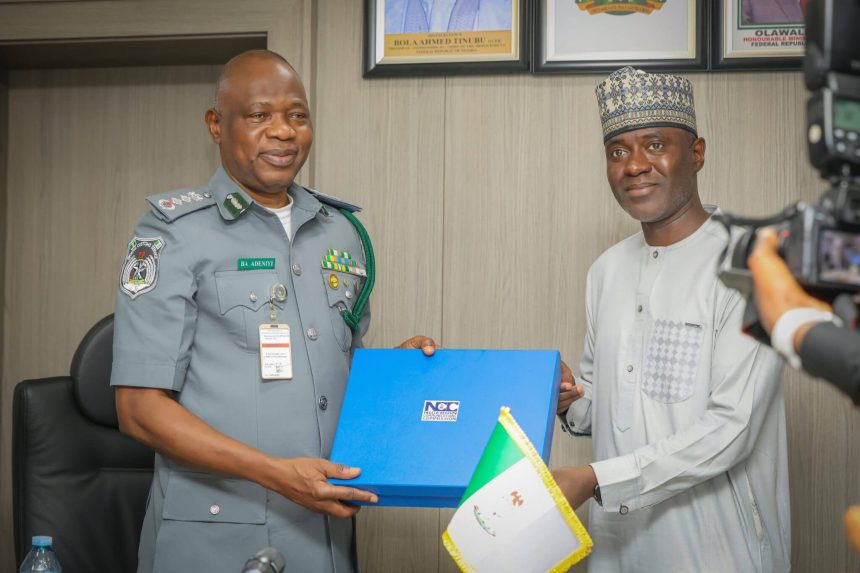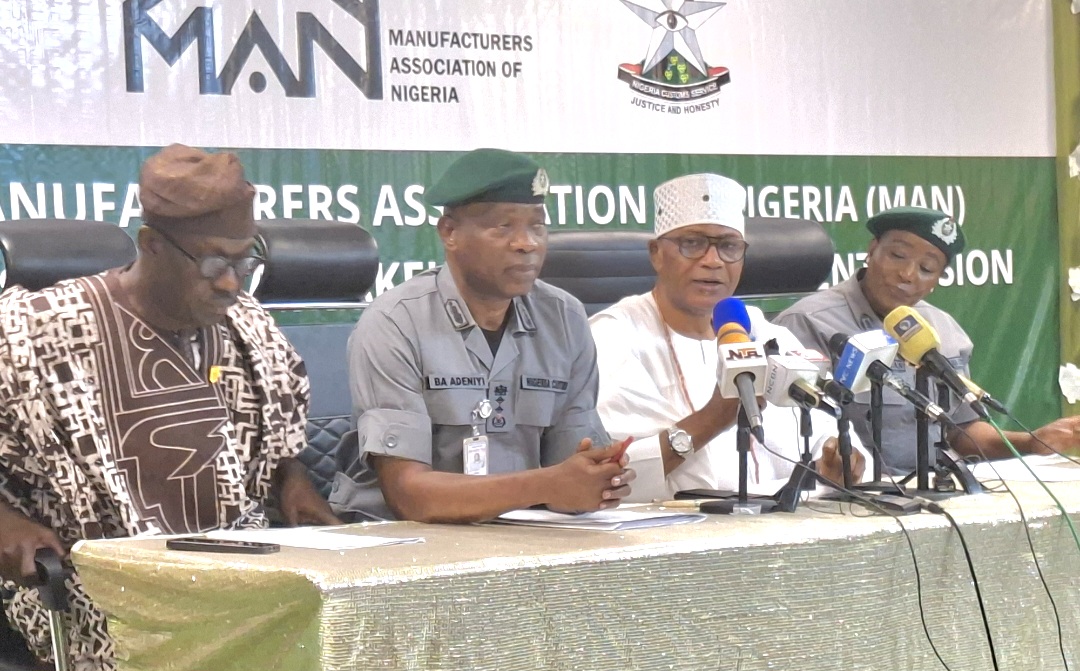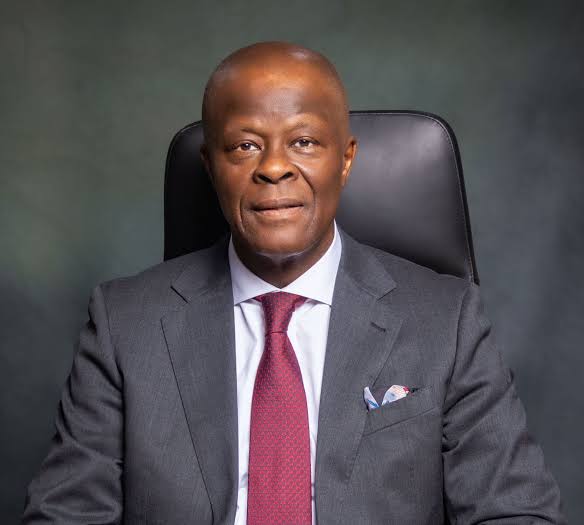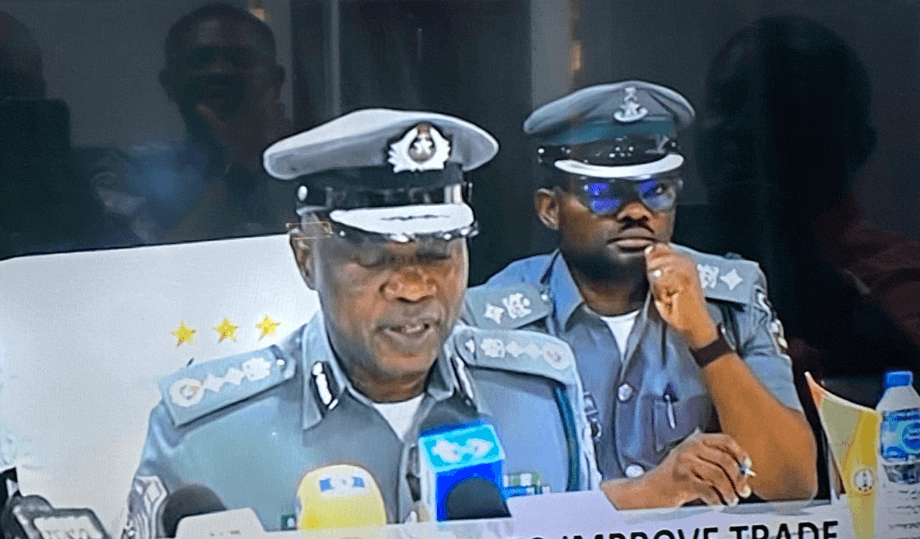The Comptroller-General of Customs (CGC), Adewale Adeniyi, has pledged deeper collaboration with the Nigerian Communications Commission (NCC) to enhance revenue generation, bolster national security, and protect public safety through stricter oversight of imported communication devices.
Adeniyi made the commitment on Tuesday, 30 September 2025, when he received the Executive Vice Chairman and Chief Executive Officer of the NCC, Aminu Maida, and his team on a courtesy visit at the Customs Headquarters in Maitama, Abuja.
The Customs boss said the Service was increasingly focusing on the security implications of unchecked mobile device imports, noting that stronger cooperation with the NCC would help both agencies to tighten monitoring and certification systems.
He explained that imports such as mobile phones, network boosters, and telecom equipment must undergo proper certification and tariff classification, ensuring that only authorised importers bring such devices into the country. According to him, aligning Customs procedures with NCC’s regulatory standards would improve both revenue assurance and national security.
“We will work with the NCC to train our officers on certification processes and align tariff codes with regulated devices,” Adeniyi stated. “Both for effective security and revenue, we are committed to deepening collaboration.”
Addressing broader safety issues, the CGC noted that the growing density of high-rise buildings and sensitive facilities in urban areas like Abuja calls for shared vigilance between both agencies to prevent potential disasters.
In his remarks, NCC’s Executive Vice Chairman, Aminu Maida, congratulated Adeniyi on his election as Chairperson of the World Customs Organization (WCO) Council, describing it as global recognition of his leadership and professionalism.
Maida highlighted that the Device Management System (DMS)—a platform developed by the NCC to track imported mobile phones and block substandard devices—would support Customs in boosting revenue while improving telecommunication service quality.
“One of the least understood factors affecting service quality is the device itself,” Maida explained. “If a subscriber uses a substandard phone, no matter the investment operators make, service quality will remain poor. That is why the DMS project is critical.”
He also expressed concern over the importation and use of unauthorised network boosters, which, while beneficial to individuals, often distort network signals and degrade overall service quality. Maida called for Customs’ support in restricting uncertified boosters and ensuring only approved equipment enters the market.
Reaffirming the NCC’s commitment to inter-agency cooperation, Maida said both organisations must sustain the spirit of collaboration already established to tackle revenue leakages, strengthen border controls, and safeguard consumer interests.















